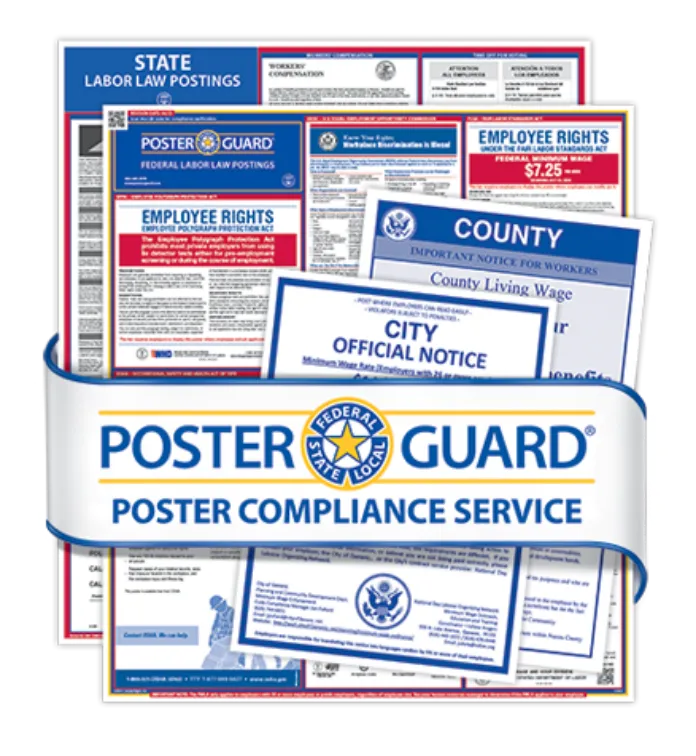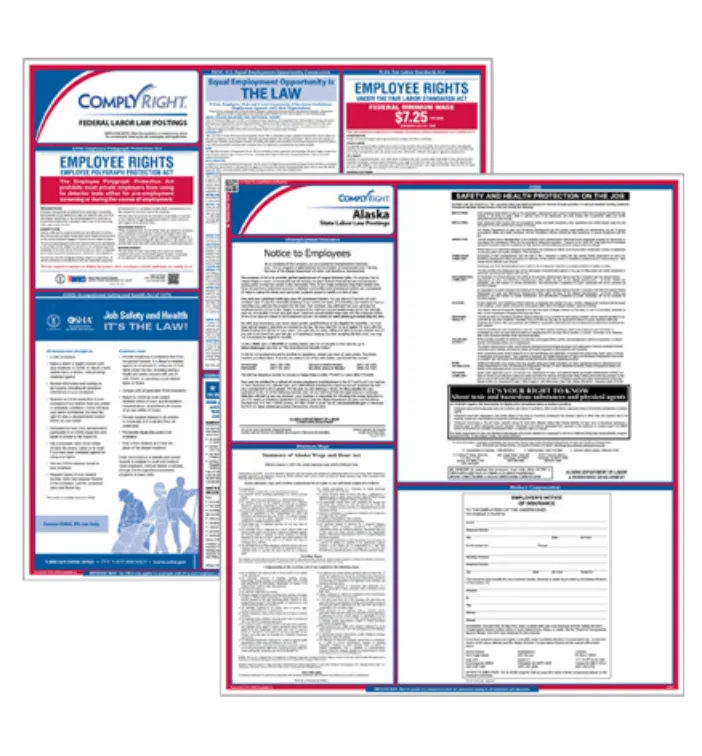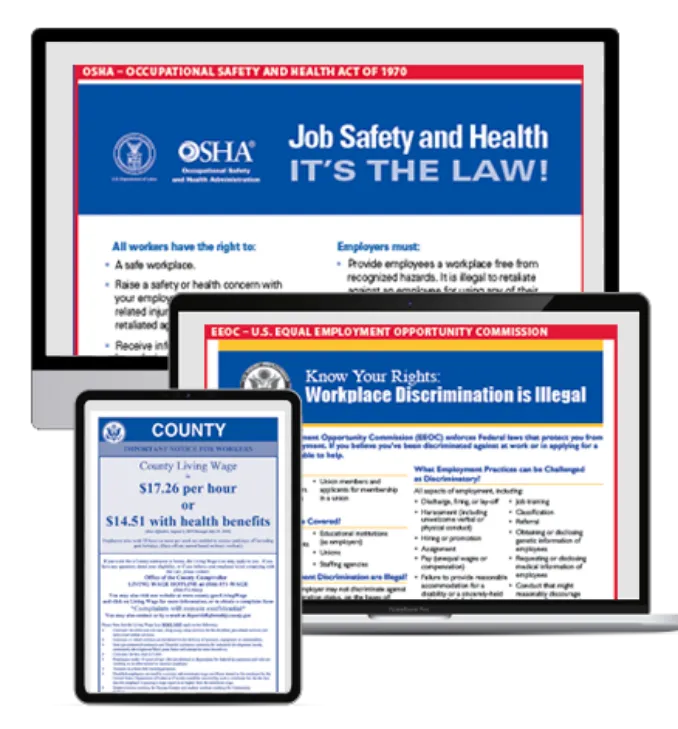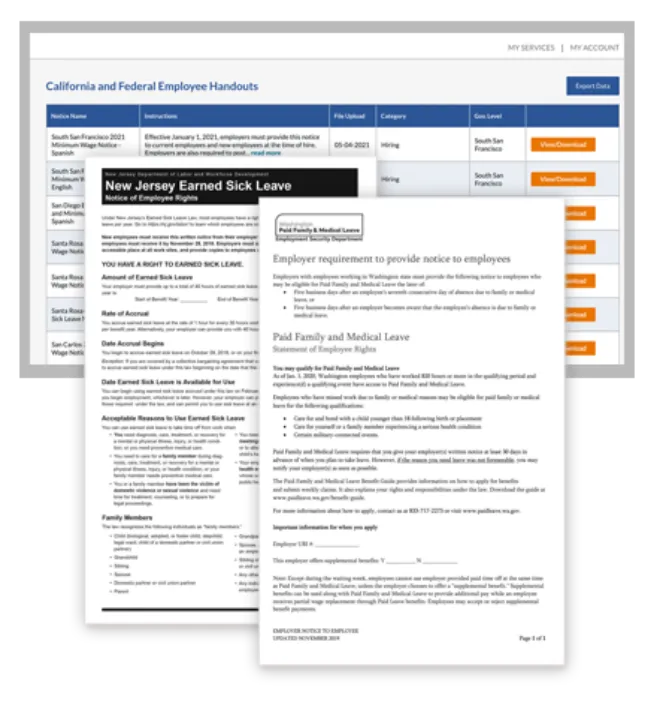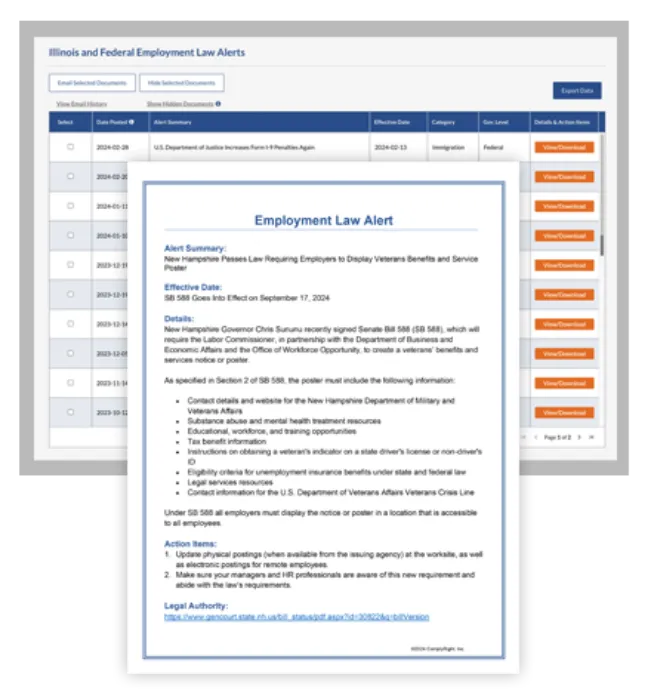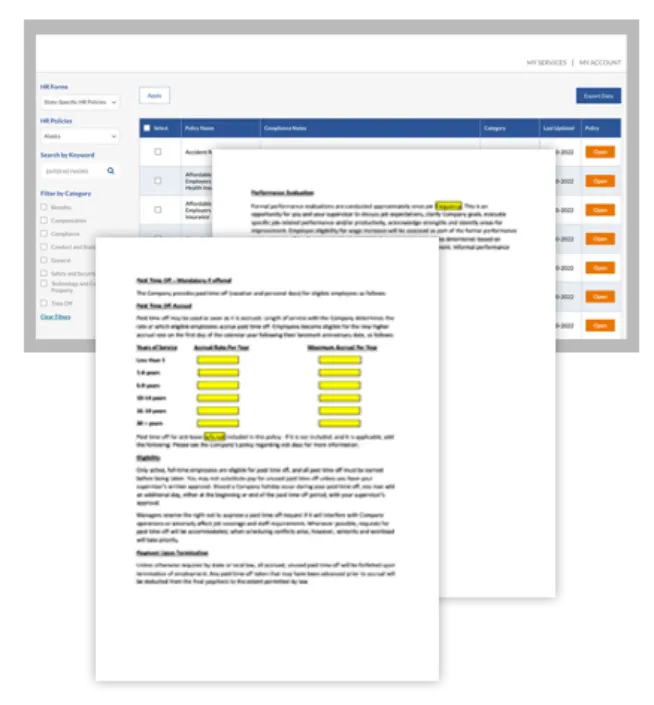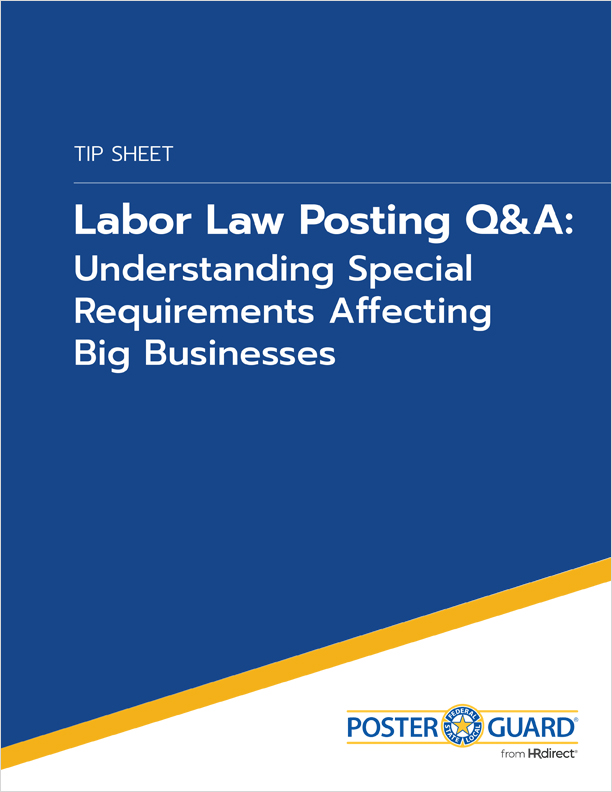Keeping track of labor law posting changes is demanding for any employer, but it can be downright daunting for multi-state, multi-location businesses.
Labor law posting compliance challenges multiply exponentially when your business operates across various states, cities and counties. In 2023, there were over 200 mandatory posting changes across 40 states.
To show you just how extensive this undertaking can be, let’s consider a fictional pizza chain. We’ll look at the typical posting requirements impacting such a business and, most important, how a labor law posting subscription service can keep them current and compliant.
Interstate Operations Pose Compliance Challenges for Labor Law Postings
Meet “Ben’s Pizza,” a family-owned eatery that exploded into a nationwide pizza chain with approximately 50 locations in nine cities throughout seven states (and with several remote workers).
Headquartered in Newark, NJ, Ben’s Pizza initially opened with two small restaurants. The pizzeria morphed into a nationwide chain when the owner’s six children moved to different states and opened up new locations to grow the business.
Ben’s Pizza eventually opened four restaurants in Newark; 11 in Philadelphia, PA; six in Dover, DE; six in Bloomfield, CT; three in Baton Rouge, LA; 12 in New York City; and five in Oakland, CA. It also employs five remote workers in Los Angeles and San Francisco combined.
All the locations share the six primary federal posting obligations, but the commonalities end there. Different states — and different cities within the same state — have their own minimum wage rates, leave laws and other regulations. For example, workers in Newark, NJ, earn a minimum wage of $15.13/hr. while workers in Los Angeles, CA earn $16.78/hr. Ben’s Pizza employees are paid anywhere from a low of $7.25/hr. in Philadelphia to a high of $18.07/hr. in San Francisco.
In 2023, the state posting requirements for Ben’s Pizza locations range from eight to 18 posters. The local posting requirements, depending on the city and/or county of the location, range from one to 11.
And it doesn’t end there. Because Ben’s Pizza is a restaurant, the company must display industry-specific posters in addition to mandatory federal, state and local posters. Different states have different requirements with these employee notices. For example, New York State requires restaurants to post six specialty posters while Connecticut only requires one.
And do you remember those remote workers? Because Ben’s Pizza also employs remote workers in Los Angeles and San Francisco, the company has an additional challenge to contend with.
To remain fully compliant, then, Ben’s Pizza needs to monitor the status of nearly 200 federal, state, local and industry-specific posters around the clock for potential changes —and be certain they’re always displaying the latest postings at every location. The pizza chain also needs to meet the responsibility of sharing required labor law posters with its offsite California workers.
Labor law posting requirements are getting more and more complex, largely due to the growing number of city and county mandates requiring businesses to post notices.
A Labor Law Posting Subscription Service Ensures Worry-Free Compliance
Fortunately, there’s a clear and definitive solution for all the posting challenges Ben’s Pizza faces. A labor law posting subscription service like Poster Guard® Poster Compliance Service is uniquely designed to address the needs of multi-state, multi-location employers. Each business location receives a complete federal, state, city and county poster set, while our Legal Team continually monitors all regulatory activity to identify applicable posting changes. This, combined with free automatic replacements of any new and/or updated mandatory postings, means you’ll enjoy 365 days of worry-free compliance. Plus, you can obtain any industry-specific postings that may be necessary, as well as take advantage of an electronic service to deliver digital postings to offsite, remote workers.
For more information and guidance, download our Labor Law Posting Q&A: Understanding Special Requirements Affecting Big Businesses tip sheet.

